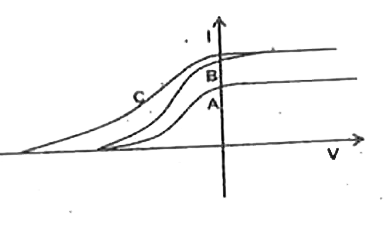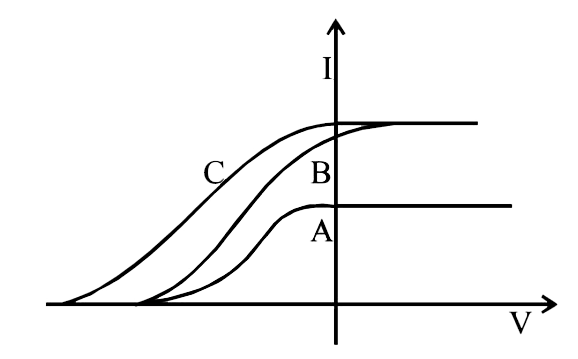In a photoelectric experiment, if stopping potential is applied, then photocurrent becomes zero. This means that:
the emission of photoelectrons is stopped
the photoelectrons are emitted but are reabsorbed by the emitter metal
the photoelectrons are accumulated near the collector plate
the photoelectrons are dispersed from the sides of the apparatus.
The correct Answer is:B
Step by step video, text & image solution for In a photoelectric experiment, if stopping potential is applied, then photocurrent becomes zero. This means that: by Physics experts to help you in doubts & scoring excellent marks in Class 12 exams.
Updated on:21/07/2023Topper's Solved these Questions
- ATOMIC PHYSICSBOOK - RESONANCECHAPTER - ATOMIC PHYSICSEXERCISE - Exercise (2) Only one option correct type
30 Videos
- ATOMIC PHYSICSBOOK - RESONANCECHAPTER - ATOMIC PHYSICSEXERCISE - Exercise-2 part-II Single and double value integer type
12 Videos
- ATOMIC PHYSICSBOOK - RESONANCECHAPTER - ATOMIC PHYSICSEXERCISE - Exercise 1 Part-1 subjective questions
35 Videos
- ALTERNATING CURRENTBOOK - RESONANCECHAPTER - ALTERNATING CURRENTEXERCISE - HIGH LEVEL PROBLEMS
11 Videos
- CAPACITANCEBOOK - RESONANCECHAPTER - CAPACITANCEEXERCISE - High Level Problems
16 Videos
Similar Questions
Knowledge Check
In photoelectric effect, stopping potential depends on
Afrequency of incident lightBnature of the emitter materialCintensity of incident lightDboth (a) and (b)In photoelectric effect, stopping potential depends on
Afrequency of the incident lightBintensity of the incident light by varies source distanceCemitter's propertiesDfrequency and intensity of the incident lightAt stopping potential, the photo electric current becomes
AMinimumBMaximumCZeroDInfinity
In a photoelectric experiment anode potential is plotted against plate current.Then

View SolutionIn a photoelectric experiment anode potential is ploted againest plate currect.

View SolutionIn a photoelectric effect experiment, the stopping potential is 0.71 V and corresponding wavelength of incident photon was 491 nm. Now the stopping potential of battery is increased to 1.4 V. Find new wavelength of incident photon ?
View SolutionIn a photoelectric experiment the stopping potential for the incident light of wavelength 4000Å is 2 volt. If the wavelength be changed to 3000 Å, the stopping potential will be
View SolutionIn photoelectric effect , photocurrent
View Solution
